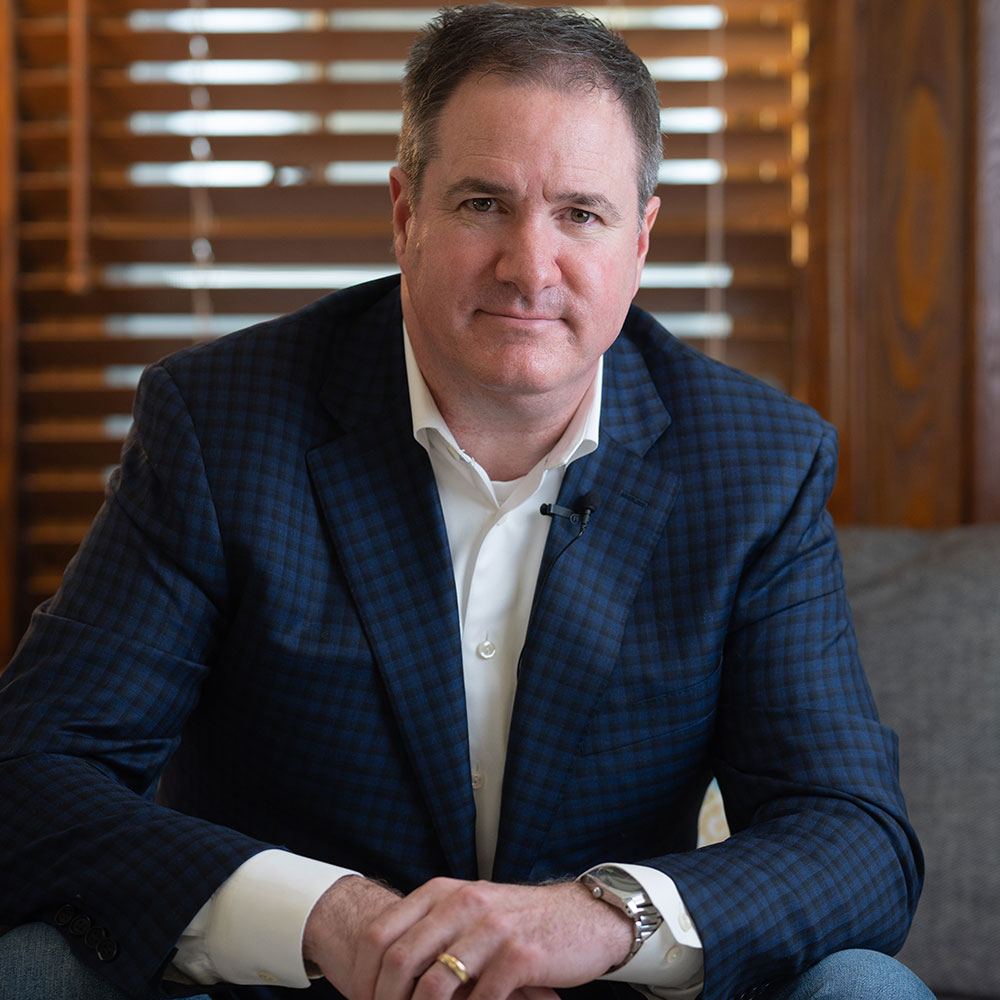Michael Washburn
Principal & Founder
Michael Washburn studied environmental studies at the SUNY College of Environmental Science and Forestry and completed his BS in 1992. He stayed on and completed a master’s degree in wilderness management in 1993. These experiences built on his long interest in nature as an Eagle Scout and fifth-generation Adirondacker. During grad school, he spent summers as an Adirondack Guide, taking groups and individuals on long-haul canoe trips and hiking adventures throughout New York’s Adirondack Park.
After completing his master’s, he landed an internship in Washington, D.C., with the Society of American Foresters. During this experience, he attended a Congressional hearing where Secretary of the Interior, Bruce Babbitt, defended his authority to reintroduce wolves to Yellowstone National Park under the Endangered Species Act. Michael’s interest in policy began here.
While attending an SAF conference, Michael met Steve Jones, then a professor at Penn State, who almost immediately invited him to visit campus. Michael took an offer of a fully funded research assistantship and completed a Ph.D. in forest resources in 1998. His dissertation is an analysis of the policy dynamics surrounding America’s 10 million private forest landowners and how they make management decisions that affect the sustainability of 70% of forest land in the country. He was the project manager and a contributing author of the book The Business of Sustainable Forestry (Island Press, 1998). This project included executives from forest products companies, multiple private foundations, and other academics. This began Michael’s acquaintance with charitable donors, fundraising, and cross-sector collaboration.
Michael stayed with Penn State for two more years running a research collaborative, the Sustainable Forestry Partnership, which he had helped develop during his graduate studies. This brought him into advising the USDA Forest Service on national forest management issues and attracted the attention of the Dean at Yale’s Forestry School. He was invited to join the faculty there in 2001 and stayed for two years. He founded the Program on Forest Certification, which was dedicated to research and teaching on the aspects of third-party certification and how various systems were evolving worldwide. During these two years, he maintained offices in New Haven and D.C., as he was a part-time advisor to the Chief’s office at the Forest Service. It was from this platform that he was invited to join the Forest Stewardship Council to lead marketing efforts, which brought him back to D.C. in 2003.
FSC afforded Michael a platform to meet with the world’s largest companies, including producers and consumers of wood and paper. This also began his process of understanding corporate sustainability and the various pressures created by the intersection of corporate incentives, NGO advocacy, and government regulation. Michael’s work focused on expanding understanding and adoption of the FSC value proposition that forestry could be conducted in a responsible, socially beneficial, and economically viable fashion. His efforts led to the FSC “tree and checkmark” logo appearing on everything from Kleenex boxes to Pottery Barn catalogs.
In 2008, Michael returned to the Adirondacks to lead the Residents’ Committee to Protect the Adirondacks, a regional advocacy group seeking to defend the New York State Forest Preserve, created in 1885. As executive director, this was Michael’s first run at being the principal of an organization. He led litigation to force the Department of Environmental Conservation and the Adirondack Park Agency to enforce their own regulations and led activist campaigns to fight some of the largest development projects ever proposed in the region. Ultimately, all of these efforts succeeded due to the coalitions committed to their completion. He was part of the landmark suit to stop floatplane access to wilderness lakes, which revealed that the state was not only ignoring wilderness regulations but was failing to protect waters that were the sovereign property of the State of New York.
Michael’s tenure in the Adirondacks was cut short as donors fell away due to the impacts of the Great Recession in 2008 and 2009. He navigated his organization into a merger with another nonprofit, laid off his staff, resigned, and landed at The Wilderness Society. At TWS, he led efforts to expand and conserve federal lands in the Eastern U.S., including the Southern Appalachians and New England. His work resulted in increased adoption of wilderness study areas in North Carolina and a national wildlife refuge expansion in New Hampshire. TWS experienced a reduction in force in 2010, again due to the recession, and Michael decided that perhaps nonprofit work was not the best way forward.
On December 10, 2010, he interviewed to lead sustainability at Nestlé Waters North America. In his interview with the CEO, Kim Jeffery, he was introduced to the concept of extended producer responsibility. Michael would ultimately lead a four-year effort to develop and pass the first packaging EPR legislation in the U.S. It was this effort that drove recycling onto the list of corporate sustainability priorities, forced Walmart to convene and create the Closed Loop Fund, a $100 million loan fund to support recycling, and catalyzed a national movement that would later mature and drive the passage of multiple EPR laws.
After leaving Nestlé, Michael founded Washburn Consulting: Sustainability & Public Affairs, where he serves as Principal. In this role, he has advised The Recycling Partnership, where he lobbied on several bills. He was also involved in the startup of Circular Action Alliance, the first producer responsibility organization for packaging in the US, which is charged with helping thousands of companies meet their compliance obligations. His current clients include trade associations and companies spanning household and commercial products, beauty, confectioners and retail. He is a frequent speaker and widely viewed as a trusted source for information, guidance, support and compliance anxiety counseling.

